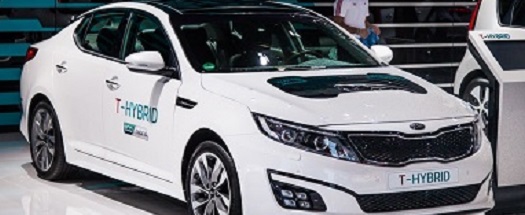ALABC kept the flag flying for lead in a sea of lithium-ion, with its advanced 48V lead-carbon batteries at the Advanced Battery Conference in Mainz, Germany, last week.
Data from the Advanced Lead-Acid Battery Consortium (ALABC) showed current mild-hybrid vehicle projects, in partnership with Ford and Hyundai/Kia, is aiming at reducing CO2 emissions by 15-20%.
Results publicised by ALABC show a 16% reduction in emissions for the Kia from the base vehicle, however the base vehicle figure has not been provided by Hyundai.
The EU has set a target of 95 g/km of CO2 by 2020 for new passenger cars, and the ALABC test results show the 48V Adept, based on a Ford Focus car, battery system could reach emissions of just 75g/km. Current rules say that emissions must be no more than 135 g/km.
Two vehicles were publicised at the conference, the other bieing a T-Hybrid, based on a Kia Optima.
Both use an advanced 48V lead-carbon battery system with bolt-on electrical components which allow for engine downsizing with much lower CO2 emissions without a resulting loss in performance.
“The low additional cost of introducing 48V mild-hybrid powertrains is continuing to attract automakers because it is the most cost-effective means of complying with stringent CO2 regulations over the next 10 years,” said Alistair Davidson, of ALABC.
“By adding electrical components like the Valeo supercharger and the CPT SpeedStart ISG, you can give a 1.4-litre engine the performance of a 1.8-litre engine or better, and still provide the same enhanced emission benefits,” said Allan Cooper, European projects coordinator for ALABC.
“In essence, this system allows you to reduce fuel consumption with additional electrical components, but increase performance while still maintaining a low production cost because of the use of lead-carbon batteries.”












